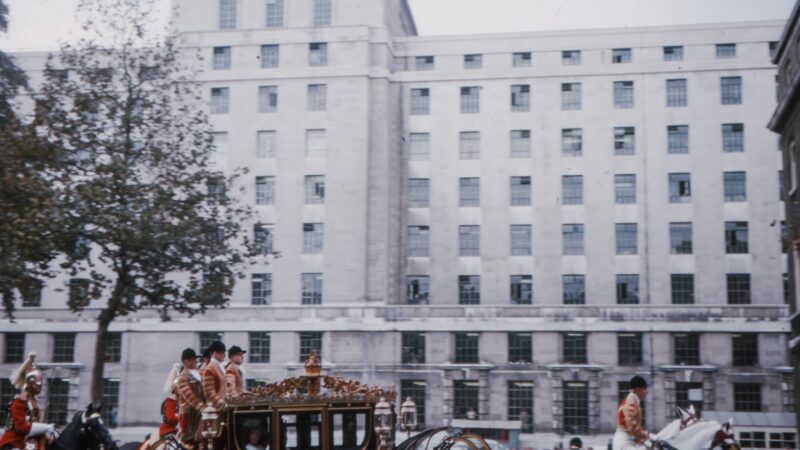A few days before the 2010 general election, Peter Hitchens wrote an article in the Daily Mail titled ‘This is the most important article I’ve ever written – and loyal Conservative voters will hate me for it’.
In it he argued that, despite being counterintuitive, voters must eschew the Tories if there was to be any chance of implementing a genuine, conservative agenda for Britain.
Much of its analysis of Britain’s woes are completely applicable today. He ends it by writing: ‘Five years’ from now we could throw the liberal elite into the sea, if we tried. But the first stage in that rebellion must be the failure of David Cameron to rescue the wretched anti-British Blair project and wrap it in a blue dress’.
Fourteen years later, not only is the anti-British Blair project wrapped in a blue dress still ruling the country, but David Cameron is again one of its leading figures, rubbing more shoulders at Davos and advocating military actions more brutal and destabilising than even Blair could dream of.
In 2019, Brexit allowed the Conservatives to completely refresh their image and successfully brand themselves as a populist national-conservative party. I myself, for the first (and last) time, voted for them in that election. For this I am ashamed.
What has transpired since is that, what we once identified as Blairism, is in fact part of a wider and even more sinister agenda. If what Hitchens realistically desired was an internal struggle within the Conservatives after a 2010 loss, what we can achieve today is that party’s shattering into a million tiny pieces.
‘But Labour will be even worse’, you will undoubtedly hear the Tory Boys cry. If this was convincing and arguable back in 2010, today it is wrong on its face.
If grassroots supporters and ordinary voters could hear how Tory journalists, politicians and advisors speak amongst themselves, they would be taken aback over how deeply their views are reviled and how deep the liberal rot is.
It is a party run almost entirely by childless, rootless metropolitans, whose view of conservatism is a Randian wet dream of identikit glass skyscrapers and GDPmaxxing.
When it comes to social values, foreign policy, education, health and every other significant policy area, there is no difference between them and the people who run Labour.
In fact, I would go as far to say that Labour is actually run by more ‘normal’ people. So why is it so important to destroy the Tories? Because of what comes after.
Starmer’s Labour is at this stage a well-oiled machine raring to go. Unlike the Tories, it does not pretend to be something it is not. It is an out-and-proud party of the Davos agenda.
Its current popularity is based on it not being the party to preside over the last decade and a half of chaos and decline.
If we are going to have a globalist government, let’s have the exhibitionists instead of those in the closet, as this will help the public correctly identify their enemies.
Right now, there is no appetite on the left to disrupt Labour from its course, but once they are in power it will not take long for the Corbynista wing to start making movements.
This could remove from Labour the contingent that actually can make some common cause with the dissident right (Euroscepticism, averseness to dangerous foreign entanglements, distrust of corporate and financial elites, and a belief in the nationalisation of strategic industries come to mind).
More important is what happens to the Conservatives. Hitchens correctly identifies the Westminster consensus as being ‘only propped up by state funding and dodgy millionaires’.
The funding is allocated based on the number of seats a party holds, and the donations on its prospects of power. A Tory wipe-out would kill both birds with one stone.
If the rump of it is allowed to remain as a significantly large party, it is likely to limp on and even capitalise on its new ability to talk the talk from the opposition benches without having to walk at all.
A vacuum, which we know nature abhors, must be created in its place.
Current polling shows that support for Reform UK could cost the Tories many seats in favour of Labour, despite Reform not winning any themselves.
Reform platform is a damn sight better than anything else out there, but Richard Tice’s neocon Tory-lite outfit will not bring about the reform we actually need. It could, however, be the catalyst for it.
Destroying the Conservative Party once and for all would be a noble and worthwhile aim, and would open the door for major, long-needed shakeup of our politics.
This is a strong argument that Tice would be well advised to use, but predictably he will say that the Brexit Party stood aside for the Tories in 2019 and they failed on Brexit and immigration, so this time they won’t stand aside.
He will, equally predictably, be countered with the argument that he will still let Labour in without winning seats himself.
Openly declaring war on the Tories as a necessary first-step in building a viable and genuine conservative political movement is something that is hard to argue against. Such a battle cry could also attract non-Tory voters.
The only Reform UK politician I have heard express this intent openly is its Co-Deputy Leader, Ben Habib. So it is not an impossibility that they take this line.
Habib is the real deal, but would need someone with the profile of Farage to meaningfully spread this message.
If the straightjacket of the two-party system can be broken, a genuine political realignment can take place, making the ‘Red Wall’ shift pale in comparison.
You might now be wondering where Alexei Navalny comes into all of this.
We have all heard of ‘tactical voting’, but have you ever heard of ‘smart voting’?
Umnoye golosovaniye was a website set up by Navalny’s Anti-Corruption Foundation that had a single goal: letting people know who to vote for to have the best chance of ousting incumbent United Russia politicians.
Unlike British tactical voting, this was an integrated, mathematical system that had no limits or any other goals, and would advise you to vote for communist, ultranationalist and liberal candidates alike; whoever had the best chance.
Many in the ‘non-systemic opposition’ said it would be impossible to vote out the ruling regime in any case, and that engaging with it by participating in elections would only legitimise it. Yet Navalny argued convincingly that shouting from the side lines alone ultimately changes nothing.
For obvious reasons, success of smart voting was limited in the Russian system, but it is a strategy much better suited to our own system of illusory free elections, which are based on brainwashing and narrative control, as opposed to the more primitive techniques used by the Kremlin.
There, the process of voting itself has to be manipulated to maintain the status quo, with there being a limit to the amount achieved by propaganda alone.
Here in the UK, propaganda is the overriding method of keeping out the non-systemic opposition.
What this means is that our actual electoral system is, compared to the American one at least, largely free from rigging and ballot manipulation.
This provides opportunity to collapse, or at least fracture, what is an all-encompassing regime by using its own structures against it.
The Conservative Party is the weak link in the chain – and it can be broken.
The success of a British smart voting system would depend on how convincingly the argument is made.
If it is made well enough, we could indeed throw the liberal elite into the sea five years from now.



